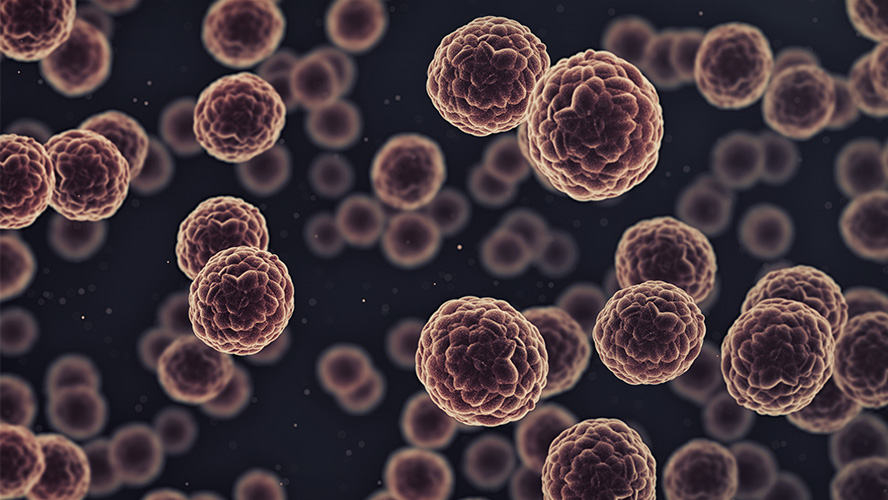
A study from UHN’s Princess Margaret Cancer Centre has spotlighted a molecule called 2-aminoethanethiol dioxygenase (ADO) as essential for cancer cell growth and survival. This discovery suggests ADO could be a novel target for cancer treatments.
A hallmark of cancer cells is their abnormal energy use, or metabolism, which supports rapid proliferation. To fuel this process, cancer cells require the uptake of large amounts of cystine which is then converted to cysteine—an amino acid essential for producing vital molecules. However, breaking down cysteine with an enzyme called CDO can reduce cysteine levels and harm some cancer cells. To avoid this, many cancers turn off the gene for CDO, preventing cysteine depletion.
ADO is an enzyme that works similarly to CDO, producing some of the same compounds. Although ADO can be an alternative to CDO and evidence has linked it to poor prognosis of certain cancers and other cancer survival traits, its role in cancer is unclear.
Researchers explored this by reducing ADO levels in cancer cells and lab models, finding that its depletion inhibited cell proliferation and survival and slowed tumour growth.
Interestingly, when the team created non-cancer experimental models that lacked ADO, these models remained healthy, showing that normal, non-cancerous, tissues can function without this enzyme. To further explore why ADO is essential specifically for cancer cells, researchers analyzed the protein and metabolite makeup of cells when ADO was removed.
Findings revealed why ADO is indispensable to cancer cells. Without ADO, toxic levels of molecules called polyamines accumulate, triggering a cascade of stress responses. This activates another protein, proline dehydrogenase (PRODH), which increases mitochondrial activity and produces harmful reactive oxygen species (ROS). The resulting oxidative stress overwhelms the cancer cells, leading to their death.
These results reveal a new mechanism by which ADO supports cancer cell survival and identifies it as a potential therapeutic target.
“This discovery highlights how cancer cells exploit unique metabolic pathways for survival,” said senior author Dr. Marianne Koritzinsky, Senior Scientist at Princess Margaret Cancer Centre. “By targeting ADO, we could develop therapies that specifically attack cancer cells while sparing healthy tissues.”
The first author of this study is Dr. Sandy Che-Eun S. Lee, former Doctoral Student at Princess Margaret Cancer Centre and current Postdoctoral Researcher at the David Geffen School of Medicine (University of California, Los Angeles).
The senior author of this study is Dr. Marianne Koritzinsky, Senior Scientist at Princess Margaret Cancer Centre and Associate Professor in the Departments of Medical Biophysics and Radiation Oncology at the University of Toronto.
This project was supported by the Terry Fox Research Institute, the Government of Canada, the Ontario Ministry of Health, the Department of Radiation Oncology at the University of Toronto, and The Princess Margaret Cancer Foundation.
Lee SCS, Pyo AHA, Mohammadi H, Zhang J, Dvorkin-Gheva A, Malbeteau L, Chung S, Khan S, Ciudad MT, Rondeau V, Cairns RA, Kislinger T, McGaha TL, Wouters BG, Reisz JA, Culp-Hill R, D'Alessandro A, Jones CL, Koritzinsky M. Cysteamine dioxygenase (ADO) governs cancer cell mitochondrial redox homeostasis through proline metabolism. Sci Adv. 2024 Oct 4;10(40):eadq0355. doi: 10.1126/sciadv.adq0355. Epub 2024 Oct 2.




